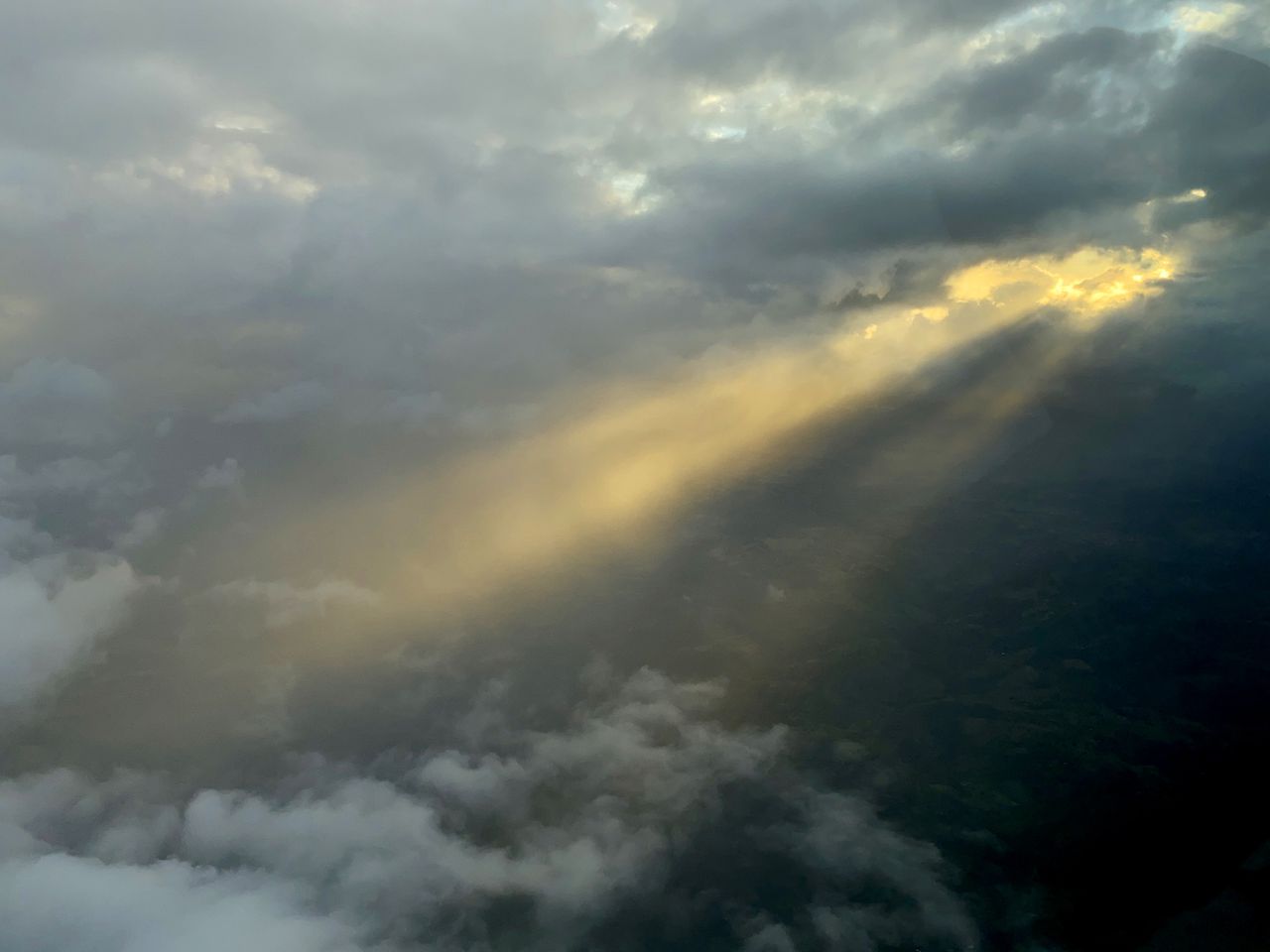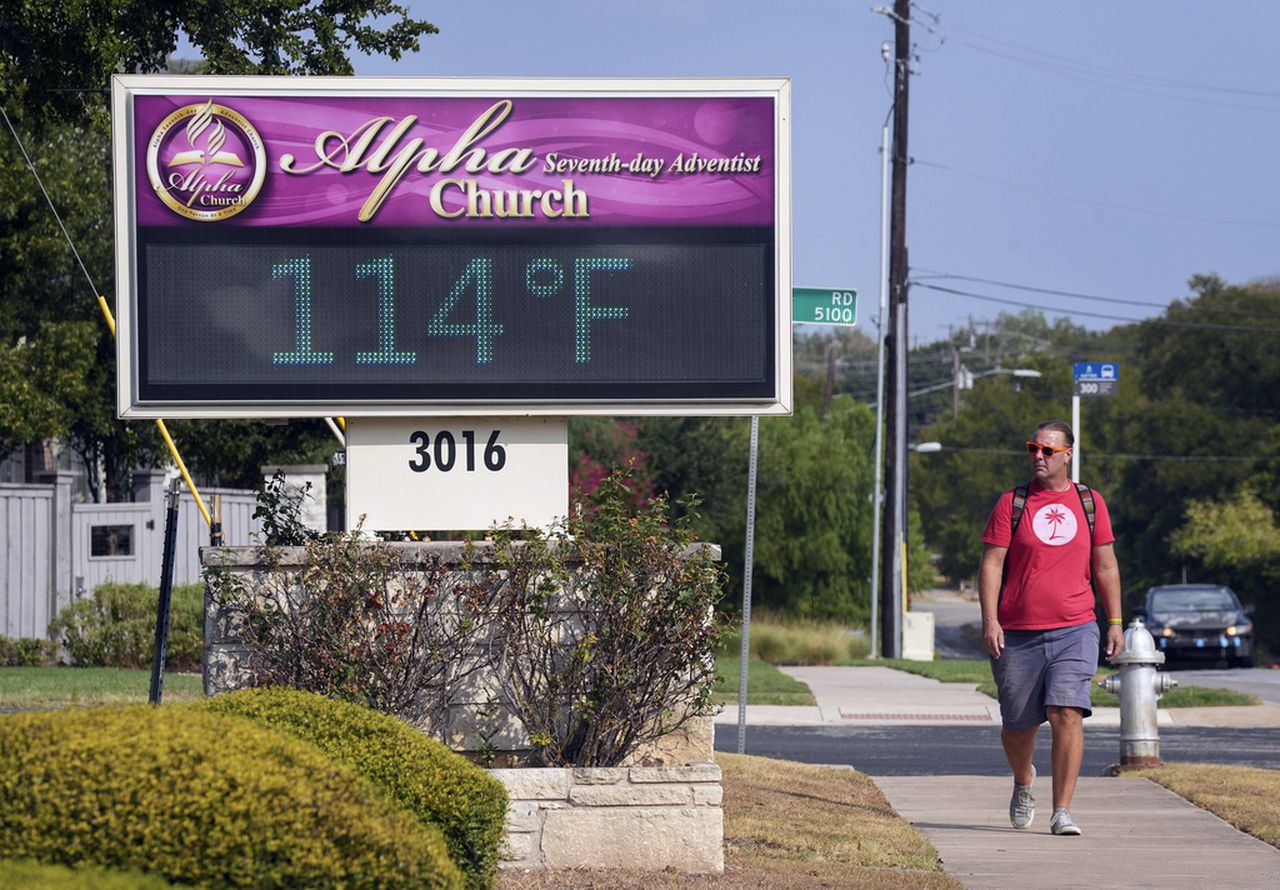Like garbage in the Sistine Chapel
A few months ago, I decided that, as a climate reporter, I should probably reduce my plastic use. As you may know, plastic is made from petroleum, and Americans throw away tens of millions of tons per year.
Coca-Cola and Nestle are currently the worst offenders and, for a fleeting moment, I was the Saint Francis of petroleum byproducts.
The path to plastic abstinence started with buying yet another metal water bottle, my constant companion for about a month until it went to water bottle heaven, either left at the beach, sneakily wedged under the front seat of my car or otherwise forgotten about.
I also tried to make groceries eco again by salvaging a sturdy Costco cardboard box, thinking that not even I could forget to take it to the store, unlike the piles of fabric bags scrunched up and forgotten in the trunk. It didn’t last long on my shallow front porch in Mobile, Alabama, one of the rainiest cities in the country. It turned into a pulpy mush. Back to plastic, I went.
The good news is this: I’ll keep finding other ways to realize my few reasonable sustainability goals.
My green calamities show that even small climate change solutions aren’t easy for everyone, and we probably have a long way to go to realize the big ones, like reducing our vast carbon emissions and moving away from fossil fuel use.
Change is often inconvenient. But regardless of where you are on the climate change belief scale, perhaps you can agree that we all deserve, at the very least, air and water free of industrial chemicals.
The past few years have handed us unusual weather events like catastrophic flooding, heavy snowfall, record hurricanes, extreme heat, drought and horrific wildfires. Hurricane Idalia has come and gone, but it has left some experts scratching their heads because of how quickly it intensified – potentially breaking the record. New weather phenomena like that should be of concern.
It’s a sobering and exhausting panorama. Lives changed, and some tragically lost. And yet, amidst all these end-of-days reruns, there are silver linings we should not forget about. In our inaugural newsletter, we’ll look at one of these tiny triumphs, like a daffodil in a minefield. If we can’t celebrate the good, what on Earth are we fighting for?
A man walks along East 51st Street in Austin, Texas, next to a sign displaying the unofficial temperature on a very hot afternoon Friday Aug. 25, 2023.(Jay Janner/Austin American-Statesman via AP)AP
Drizzle – In the news
Picture this: For half a century, the Barry Electric Generating Plant in scenic South Alabama has accumulated 21 million tons of toxic coal ash, lounging in a giant pond just 50 feet from Mobile Bay—the biodiversity poster child of North America. It’s as if someone decided to leave their garbage in the Sistine Chapel.
Alabama Power proposed a plan to close the pond by simply covering it in dirt. Apparently, trucking the coal ash to a less catastrophic location is too expensive and arduous for a company that generates billions in profits and gets most of its coal all the way from Wyoming.
The Alabama Department of Environmental Management (ADEM), which has a long and objectively troubled relationship with Mother Nature, said the plan was totally fine. If you aren’t familiar with either, I would describe them as the Tom & Jerry of Alabama’s environment. Sort of like frenemies. ADEM is not well regarded by local environmental groups and its lack of funding has led to lax enforcement all over the state. Its director, Lance LeFleur, admitted to signing policy documents drafted by lobbyists working for Alabama Power in 2018.
But here’s the good news that will have an effect on the whole country: the U.S. Environmental Protection Agency isn’t going for ADEM’s plan, saying that the proposal doesn’t protect the waterways or the people of Alabama and will make a final ruling in October. It wants Alabama Power to think again, but it also wants to hear from you.
Ahead of a public comment period on Sept. 20 in Montgomery and online on Sept. 27, a group of concerned seniors is leading a charge to inform people of the plan and to get involved. You can sign up to speak in person here or register for the online event here. Out-of-state residents can watch the hearings.
But ditching fossil fuels isn’t just a tick in the box of the eco-friendly playbook. Not doing it could have serious consequences for people and the environment. A staggering 90% of the heat generated by excess greenhouse gases is absorbed by the ocean like a sponge. And what does a heated ocean love to do? Stir up fast and strong hurricanes in places you’d least expect.
***
Enter Hurricane Idalia.
Emerging from the Caribbean’s warm waters off Mexico as a relatively low-key low-pressure system, it developed into a tropical depression on Aug. 27 and then a category-four tempest three days later, boasting winds of 130 mph. It may break records for how quickly it bulked up – all thanks to our record-warm waters in the Gulf of Mexico.
What makes Idalia all the more unusual is it happened during El Nino, a weather pattern that develops every 3-5 years. It’s supposed to make the Pacific hurricane season worse and the Atlantic hurricane season better. But as the past few years of unusual weather have shown us, climate change is inexplicable.
Read more on Reckon about how storms like Idalia are intensifying more quickly.
Touch Grass – Ease your mind
Move over, hot girl summer. Or boy summer. This has been the sweating-over-my-power-bill summer. Fear not: Fall and winter could be your seasons of savings:
- As I keep telling my long-suffering neighbor, reflective blinds can cut heat gain by 45%.
- And don’t overlook thermal curtains for the winter. They are 25% effective.
- There’s also the federal government’s Inflation Reduction Act, which is funneling $9 billion into home energy makeovers. Think water heater upgrades and insulation glow-ups.

Clouds over Nicaragua.Getty Images
Compost Dump – One more thing to think about
For the last few years, I’ve been thinking about how to explain climate change to evangelicals, who are typically conservative and often don’t buy the climate change narrative. I came across something that got me thinking, and I’m curious what y’all think. In the 1600s, a religious philosopher named Blaise Pascal came up with his most famous piece of work: Pascal’s Wager. It argues that it’s more rational to believe in God because the potential benefits of belief (eternal happiness) outweigh the risks of disbelief (eternal suffering). And if God doesn’t exist, you lose relatively little by believing.
What if we were to apply that philosophy to climate change?
If you have feedback or juicy environmental tips, email me at [email protected]
See you next week!
